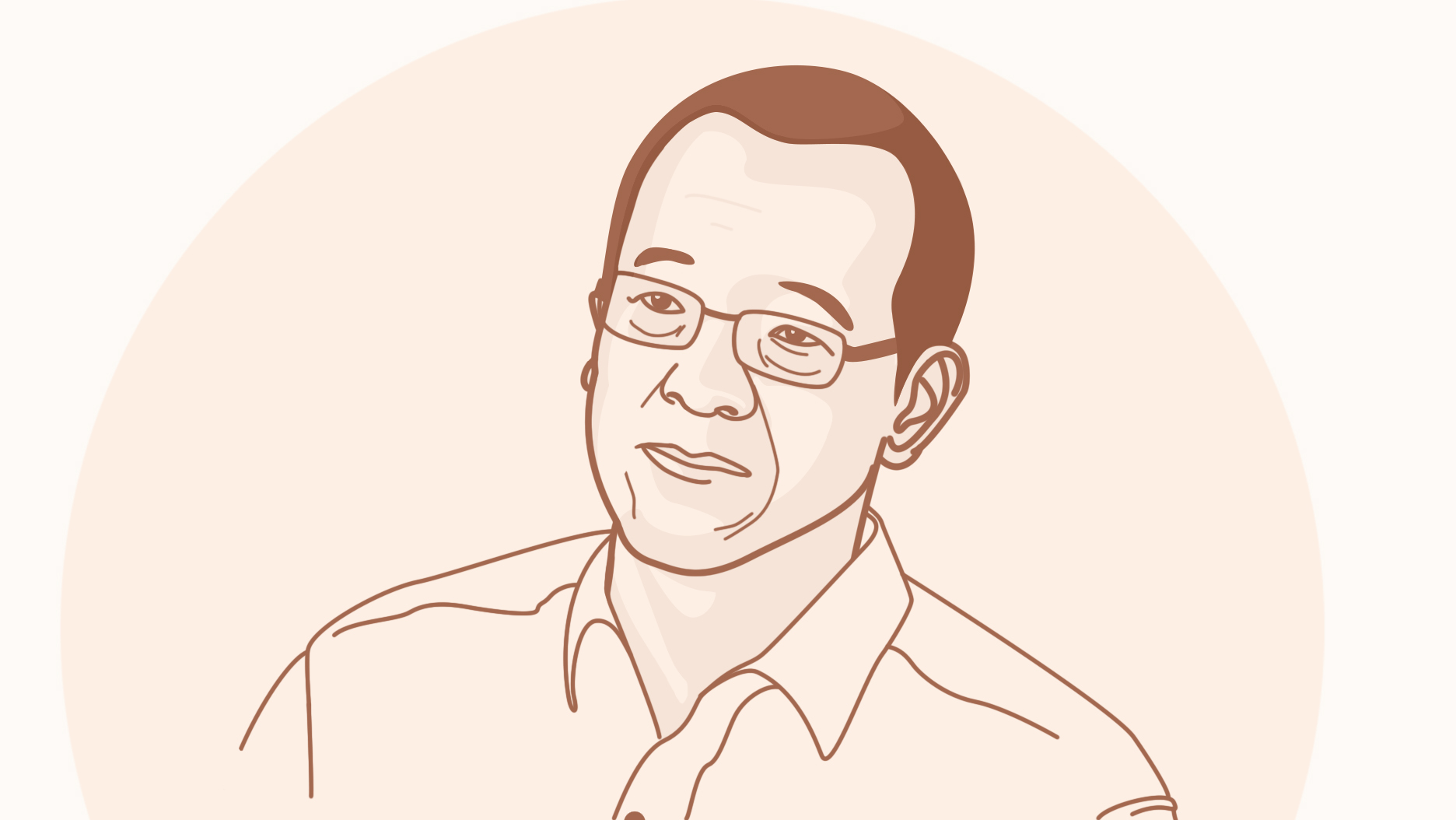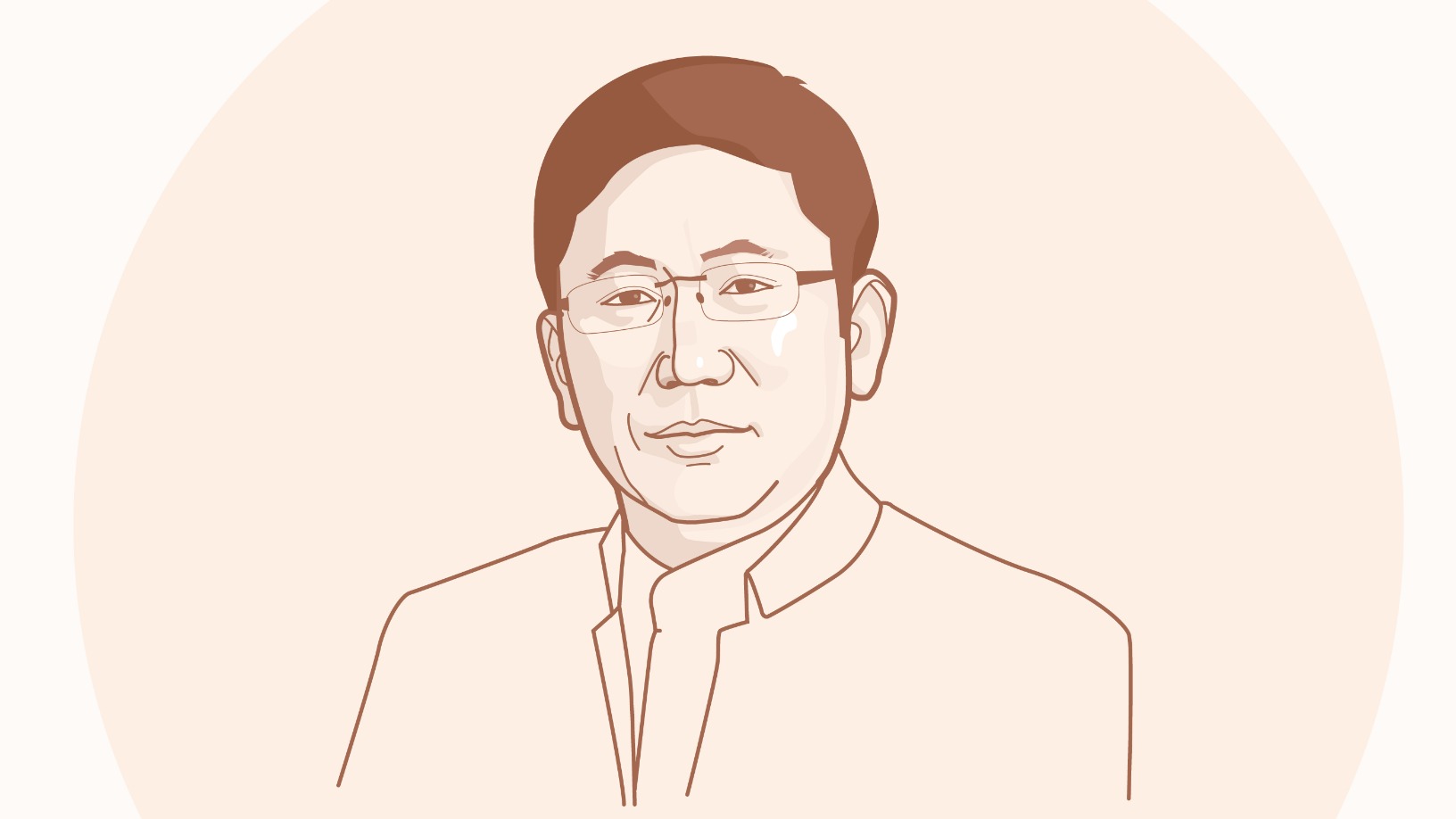The 2018 Forbes Midas List, a ranking of the top 100 global tech investors, put Bob Xu (Xu Xiaoping) 24th. It was the third year in a row Xu, founding partner at ZhenFund, had made the list.
The profile photo shows a round-faced man grinning from ear to ear. One of China's first angel investors, Xu appears far younger than his 62 years.
His real-life personality doesn't betray his age either. Xu loves to laugh out loud and raise his voice until it is hoarse to stress his point. He is constantly making jokes. Wu Xiaobo, a Chinese financial writer, once noted of the former teacher, "If he were not an investor, he would be the most popular teacher because of his sense of humor."
Xu, who has 10 million followers on Weibo, has dubbed himself the second most famous investor in China after Kai-fu Lee. One episode of the Chinese version of Dragons' Den starring Xu had 10 million hits on Tencent's video platform alone.
Ron Conway, the American angel investor dubbed the "Godfather of Silicon Valley," once said, "I like to say that I’m the Bob Xu of the U.S.A. China became a 'startup nation' in just a few years and Bob had a lot to do with that."
From 2011 to 2016, ZhenFund invested in over 300 startups, including the NASDAQ-listed Jiayuan.com and NYSE-listed 51Talk.com, as well as unicorns such as Meicai, Xiaohongshu, VIPKID and OFO, among others.
In 2017, ZhenFund invested in 109 startups and has invested in more startups with more funding in 2018.
As founder and honorary president of the China Young Angel Investor Leader Association as well as executive director of the Western Returned Scholar Association, the highly social Xu maintains an active presence in his community.
Discovering his passion
Xu had dreamed of a career in music as a young boy. In 1978, after the chaos of the Cultural Revolution, he was one of the first batch of students admitted to the Central Conservatory of Music, widely considered the best music institution in China. In 1988, Xu became one of the first Chinese students to study music in Canada at the University of Saskatchewan.
Fortunately for the entrepreneurs he would one day nurture, Xu was unsuccessful in his pursuit of a career in music. He once said of his endeavors, "I wrote and recorded folk songs, but the folks were not listening."
After leaving behind his dream of becoming a successful musician, Xu returned to China and co-founded New Oriental Education & Technology Group with Yu Minhong and Wang Qiang in 1996. One of Xu's main roles was to give public speeches and host talks to attract students.
China was going through great social change at the time. The planned economy had been replaced by a market economy in the Chinese Constitution in 1993. Young people sought out Xu for advice on everything from studying abroad to career building to everyday life. Through these encounters, Xu's passion for helping young people blossomed.
Instead of promoting New Oriental indiscriminately, Xu wanted what was best for each of his students individually. Despite being the co-founder of an institution that trains students to go abroad, he didn't blindly advocate the importance of an overseas degree but encouraged a number of students to embrace opportunities in China instead.
Xu's charisma won him great influence with a generation of elite students. In 2004, he was included on the first Forbes China Celebrity 100 list.
In 2006, New Oriental went public in the United States. Xu faded out of its daily operations. At 50, Xu, having spent the last ten years working at a company about which he cared deeply, felt lost. He had achieved financial freedom, but was having trouble adjusting to a life without a cause.
Xu told a friend he had wanted to sob while walking down one of the busiest streets in Beijing. He felt that every young man scurrying along the street had found his calling, whereas Xu had nothing but money.
In 2006, a young man who used to work at New Oriental told Xu about his plan to "build the Facebook of China." Knowing the young man's good character and recalling his own days building a startup, Xu decided to invest in him.
"In retrospect, it wasn't really like investing, more like encouraging entrepreneurship," recalled Xu. Using his money to help budding entrepreneurs was a novel experience for Xu, one which reminded him of his days helping young students at New Oriental. Through an unexpected encounter, he had found his calling.
Investing in people first
Xu, who knew little about the Internet when he started angel investing, relied initially on his strong personal instinct.
LightInTheBox and Jumei.com, his most successful early investments, speak volumes about his style. Xu's financial returns from the first company were 253-fold and more than 1000-fold from the second. Both investment decisions were made in half an hour.
Xu had an appreciation for Guo Quji, the founder of LightInTheBox, even before he graduated from Stanford University. When Guo called Xu to discuss his startup idea, even though Xu did not understand the business model, he invested right away. Xu invested in Chen Ou, founder of Jumei.com, the first time the two met. Chen was pitching a different and ultimately unsuccessful startup idea at the time.
Unlike venture capitalists who use rigorous data analysis to make investment decisions, angel investors regularly have to rely on instinct when choosing whether to invest in the person in front of them. Correctly evaluating the person making his or her pitch is an invaluable skill.
Xu's 10 years at New Oriental had taught him to be a good judge of character. Additionally, his powerful influence with students who had studied overseas meant he could invest in the best talent during the age when the "Copy to China" business model was popular.
In 2011, Bob Xu partnered with another former co-founder of New Oriental, Wang Qiang, and Sequoia Capital China to start ZhenFund. When ZhenFund began scaling up, Xu’s colleagues found it difficult to apply his signature method of investing on instinct in a systematic way.
Xu reached out to Anna Fang (Fang Aizhi) – a former analyst for JP Morgan and daughter of Fang Fenglei, one of China's first-generation investment bankers – to ask her to join ZhenFund. Fang, unlike Xu, is highly data driven. She pushed him to pick apart how he had made past decisions and helped him outline what the firm would look for in future companies in which it would invest: influence, experience and a good startup team.
As the firm grew and China's investment ecosystem improved, ZhenFund invested, on average, in one out of every 200-300 startup proposals it received. Using its now systematic approach, ZhenFund managed to catch a dozen unicorns at the earliest stage.
Support entrepreneurs to attract entrepreneurs
Angel investing in China is changing quickly. "When we started, we were basically the sole player. Now even VC giant Sequoia Capital is taking up angel investing," said Xu.
Now that China's tech ecosystem is moving beyond the copy-to-China model, Xu's influence over overseas students has become less of an advantage. "In terms of cutting-edge technology, overseas students still have an advantage. In terms of marketing, operations, etc., local Chinese entrepreneurs are now highly competitive globally," said Xu.
However, Xu's personality remains one of ZhenFund's biggest draws for founders with significant potential.
Xu devotes himself completely to the people in whom he invests. He is something of a zealot when it comes to his entrepreneurs: “Meeting someone you want to invest in is like finding your dream lover."
Early in his investing career, Xu refused to consider investing in the competition. Xu was the first angel investor in China to invest in a ride-hailing startup. Even though the startup he chose to back lagged behind its competitors, he felt too protective of his investment to jump in with more successful companies like Didi Chuxing.
"My support for my entrepreneurs is suicidal," Xu once said. “I would ignore a healthy cash flow to support them."
Many of the now successful entrepreneurs Xu has invested in failed once or twice. Jumei.com's Chen Ou experienced two failed ventures before finally shifting focus to e-commerce. In 2009, Chen's company was facing bankruptcy. Xu refrained from contacting Chen so as not to create more stress for the founder.
"He is not the most systematic investor, but he has the strongest personal style and receives the best feedback from entrepreneurs," said Hu Dan, former vice president of Sequoia Capital China, about Xu.
"Investing has given me a second youth," Xu has said. At age 62, he remains a charismatic leader who exudes excitement and passion. "I think I have enough brain power to work as an angel investor for 30-more years," said Xu in an interview last year.











